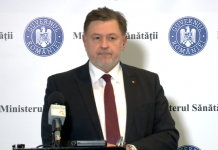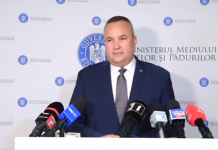Hungarian-language media in Romania are to lay off 70 % of its staff sponsored by the Hungarian government due to financial reasons.
Two-thirds of the journalists working at the Mediater Association, through which Hungary’s ruling FIDESZ party led by Viktor Orban finances much of the Hungarian-language media in Romania, will be fired at the end of next month, Transtelex reported.
The reason for the mass layoffs is a financial one, which is made worse by the energy crisis affecting Hungary.
The group of companies operated by Mediater Association will make layoffs in the editorial offices of the print newspapers, online, and within the radio stations they control.
New staff layoffs are forecast for 2023.
Transtelex reported that Kronika, launched in 1999, would reduce its full-time staff from 17 to six and its Cluj newsroom would be closed.
Investigative media from Romania and Hungary have reported that the Orban government pumped more than 20 million euros in recent years into the Hungarian-language media in Romania’s Transylvania region after the Democratic Union of Hungarians in Romania, UDMR, the main Hungarian party in the country, agreed for the Orban executive to finance these publications.
The history of the Hungarian press trust in Transylvania began in 2018, when the company Udvarhelyi Híradó SRL, led by the Hungarian oligarch Lajos Simicska, went bankrupt. Simicska was the Fidesz oligarch in charge of the party’s finances and a former roommate of Orbán’s, but the two fell out.
Mediater Association was founded in 2013 in the village of Salard in northwest Romania and became one of the most influential players in the media market.
In recent years, the association took ownership of various companies, publishing houses, radio stations and local TV license holders.
The Budapest government has approved 2020-2021 funding of around half a billion euros to Hungarian communities outside Hungary’s borders. This was done mainly through the Bethlen Gábor Fund, a Hungarian state foundation.
A large part of this money from this budget went to the Hungarian community in Transylvania through foundations or associations run by close associates of the UDMR leadership.
The European Commission on September 18 pledged to cut 7.5 billion euros in joint EU funding to Hungary amid concerns about corruption and democratic backsliding in Budapest.
Orban’s pro-Russian rhetoric and his views of Russia’s invasion of Ukraine have further worried Brussels.
Orban’s Hungarian allies in Romania insist he ‘is not racist’















